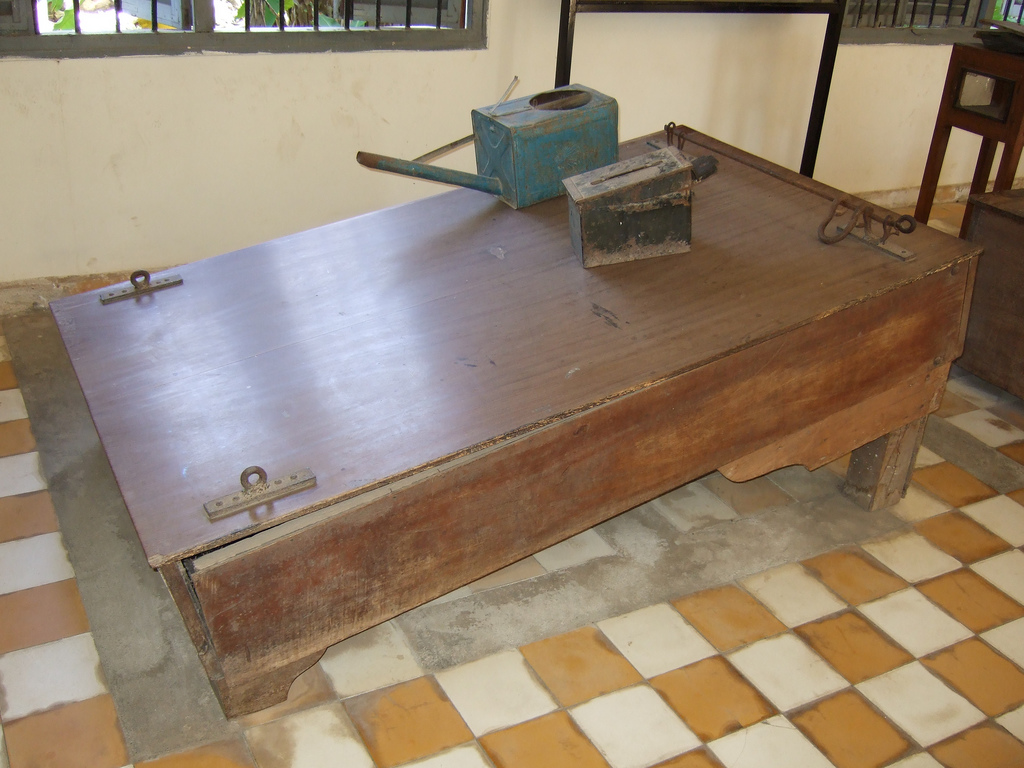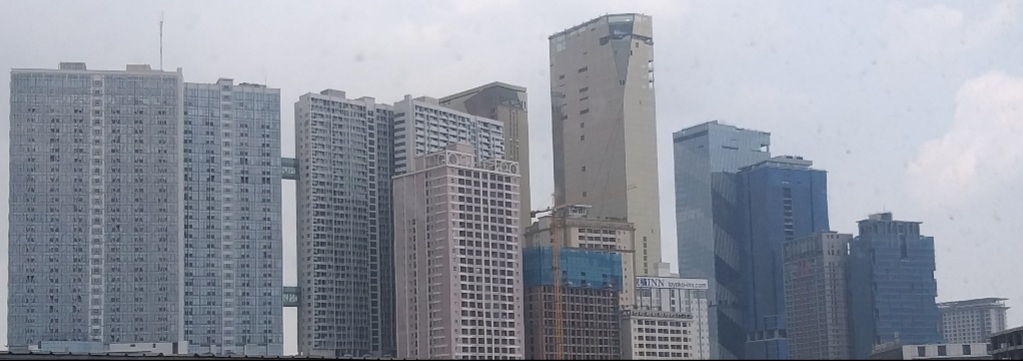|
Isolationism
Isolationism is a political philosophy advocating a national foreign policy that opposes involvement in the political affairs, and especially the wars, of other countries. Thus, isolationism fundamentally advocates neutrality and opposes entanglement in military alliances and mutual defense pacts. In its purest form, isolationism opposes all commitments to foreign countries including treaties and trade agreements. This distinguishes isolationism from non-interventionism, which also advocates military neutrality but does not necessarily oppose international commitments and treaties in general. This contrasts with philosophies such as colonialism, expansionism, and liberal internationalism. Introduction Isolationism has been defined as: By country Albania Bhutan Before 1999, Bhutan had banned television and the Internet in order to preserve its culture, environment, and identity. Eventually, Jigme Singye Wangchuck lifted the ban on television and the Internet. His son, ... [...More Info...] [...Related Items...] OR: [Wikipedia] [Google] [Baidu] |
Non-interventionism
Non-interventionism or non-intervention is a political philosophy or national foreign policy doctrine that opposes interference in the domestic politics and affairs of other countries but, in contrast to isolationism, is not necessarily opposed to international commitments in general. A 1915 definition is that non-interventionism is a policy characterized by the absence of "interference by a state or states in the external affairs of another state without its consent, or in its internal affairs with or without its consent". This is based on the grounds that a state should not interfere in the internal politics of another state as well as the principles of state sovereignty and self-determination. A similar phrase is "strategic independence". History The norm of non-intervention has dominated the majority of international relations and can be seen to have been one of the principal motivations for the US's initial non-intervention into World Wars I and II, and the non-interve ... [...More Info...] [...Related Items...] OR: [Wikipedia] [Google] [Baidu] |
Political Philosophy
Political philosophy or political theory is the philosophical study of government, addressing questions about the nature, scope, and legitimacy of public agents and institutions and the relationships between them. Its topics include politics, liberty, justice, property, rights, law, and the enforcement of laws by authority: what they are, if they are needed, what makes a government legitimate, what rights and freedoms it should protect, what form it should take, what the law is, and what duties citizens owe to a legitimate government, if any, and when it may be legitimately overthrown, if ever. Political theory also engages questions of a broader scope, tackling the political nature of phenomena and categories such as identity, culture, sexuality, race, wealth, human-nonhuman relations, ethics, religion, and more. Political science, the scientific study of politics, is generally used in the singular, but in French and Spanish the plural (''sciences politiques'' and '' ... [...More Info...] [...Related Items...] OR: [Wikipedia] [Google] [Baidu] |
Multi-party System
In political science, a multi-party system is a political system in which multiple political parties across the political spectrum run for national elections, and all have the capacity to gain control of government offices, separately or in coalition. Apart from one-party-dominant and two-party systems, multi-party systems tend to be more common in parliamentary systems than presidential systems and far more common in countries that use proportional representation compared to countries that use first-past-the-post elections. Several parties compete for power and all of them have reasonable chance of forming government. In multi-party systems that use proportional representation, each party wins a number of legislative seats proportional to the number of votes it receives. Under first-past-the-post, the electorate is divided into a number of districts, each of which selects one person to fill one seat by a plurality of the vote. First-past-the-post is not conducive to a pr ... [...More Info...] [...Related Items...] OR: [Wikipedia] [Google] [Baidu] |
Vietnam
Vietnam or Viet Nam ( vi, Viß╗ćt Nam, ), officially the Socialist Republic of Vietnam,., group="n" is a country in Southeast Asia, at the eastern edge of mainland Southeast Asia, with an area of and population of 96 million, making it the world's sixteenth-most populous country. Vietnam borders China to the north, and Laos and Cambodia to the west. It shares maritime borders with Thailand through the Gulf of Thailand, and the Philippines, Indonesia, and Malaysia through the South China Sea. Its capital is Hanoi and its largest city is Ho Chi Minh City (commonly known as Saigon). Vietnam was inhabited by the Paleolithic age, with states established in the first millennium BC on the Red River Delta in modern-day northern Vietnam. The Han dynasty annexed Northern and Central Vietnam under Chinese rule from 111 BC, until the first dynasty emerged in 939. Successive monarchical dynasties absorbed Chinese influences through Confucianism and Buddhism, and ex ... [...More Info...] [...Related Items...] OR: [Wikipedia] [Google] [Baidu] |
Year Zero (political Notion)
Year Zero ( km, ß×åߤÆß×ōß×Čߤåßפß×╝ß×ōߤÆß×Ö, ) is an idea put into practice by Pol Pot in Democratic Kampuchea that all culture and traditions within a society must be completely destroyed or discarded and that a new revolutionary culture must replace it starting from scratch. In this sense, all of the history of a nation or a people before Year Zero would be largely deemed irrelevant, because it would ideally be purged and replaced from the ground up. The first day of "year Zero" was declared by the Khmer Rouge on 17 April 1975 upon their takeover of Cambodia in order to signify a rebirth of Cambodian history. Adopting the term as an analogy to the " Year One" of the French Revolutionary Calendar,Gfroerer, John. 2017 December 3.John Gfroerer: Moving to Year Zero" ''Concord Monitor''. Retrieved 2021 April 25. Year Zero was effectually an attempt by the Khmer Rouge to erase history and reset Cambodian society to a zeroth year, removing any vestiges of the past. Concept a ... [...More Info...] [...Related Items...] OR: [Wikipedia] [Google] [Baidu] |
Tuol Sleng Genocide Museum
The Tuol Sleng Genocide Museum ( km, ßפß×Čß×Üßלß×ōߤÆß×æß×Ėß×Üßצß×ĆߤÆß×Üß×Ęß×ŖߤÆß×ŗß×ĆßלߤÆßלß×öߤÆß×Üß×øߤÉß×Öß×¢ß×╝ß×ćßפß×Čßפß×ōߤŹß×æß×Įß×øßפߤÆß×øߤéß×ä) or simply Tuol Sleng ( km, ß×æß×Įß×øßפߤÆß×øߤéß×ä, link=no, ; lit. "Hill of the Poisonous Trees" or " Strychnine Hill") is a museum chronicling the Cambodian genocide. Located in Phnom Penh, the site is a former secondary school which was used as Security Prison 21 (S-21; km, ßלß×ōߤÆß×æß×Ėß×Üßפ-ߤóߤĪ, link=no) by the Khmer Rouge regime from 1975 until its fall in 1979. From 1976 to 1979, an estimated 20,000 people were imprisoned at Tuol Sleng and it was one of between 150 and 196 torture and execution centers established by the Khmer Rouge. On 26 July 2010, the Extraordinary Chambers in the Courts of Cambodia convicted the prison's chief, Kang Kek Iew, for crimes against humanity and grave breaches of the 1949 Geneva Conventions. He died on 2 September 2020 while serving a life sentence. History To ... [...More Info...] [...Related Items...] OR: [Wikipedia] [Google] [Baidu] |
Santebal
The ''Santebal'' ( km, ßפß×ōߤÆß×Åß×Ęß×öß×Čß×ø, ; meaning "keeper of peace") was the secret police of the Khmer Rouge's Democratic Kampuchea (DK) regime in Cambodia. The Santebal was in charge of internal security and running prison camps like Tuol Sleng (S-21) where thousands of people were imprisoned, interrogated, tortured and executed. It was part of the Khmer Rouge organizational structure well before the Fall of Phnom Penh on 17 April 1975. Its name is an amalgam of two words: ''s├ónt─Ģs┼Åkh'' ( ) meaning "security" and ''n├┤k├┤rbal'' ( ) meaning "police". History As early as 1971, the Khmer Rouge or the Communist Party of Kampuchea established the Special Zone outside of Phnom Penh under the direction of Vorn Vet and Son Sen. Sen, later the Deputy Minister for Defense of Democratic Kampuchea Kampuchea ( km, ß×ĆßלߤÆß×¢ß×╗ß×ćß×Č ), officially known as Democratic Kampuchea (DK; km, ß×ĆßלߤÆß×¢ß×╗ß×ćß×Čß×öߤÆß×Üß×ćß×Čß×Æß×Ęß×öß×Åߤüß×ÖߤÆß×Ö ) from 5 January 1976, ... [...More Info...] [...Related Items...] OR: [Wikipedia] [Google] [Baidu] |
Communist Party Of Kampuchea
The Communist Party of Kampuchea (CPK),, UNGEGN: , ALA-LC: ; french: Parti communiste du Kampuchea also known as the Khmer Communist Party,"Cambodia and the Khmer People's Revolutionary Party (KPRP), Appendix B - Major Political and Military Organizations" Country Data. . was a in . Its leader was and its members were generally known as the |
Phnom Penh
Phnom Penh (; km, ß׌ߤÆß×ōߤåßעߤüß×ē, ) is the capital and most populous city of Cambodia. It has been the national capital since the French protectorate of Cambodia and has grown to become the nation's primate city and its economic, industrial, and cultural centre. Phnom Penh succeeded Angkor Thom as the capital of the Khmer nation but was abandoned several times before being reestablished in 1865 by King Norodom. The city formerly functioned as a processing center, with textiles, pharmaceuticals, machine manufacturing, and rice milling. Its chief assets, however, were cultural. Institutions of higher learning included the Royal University of Phnom Penh (established in 1960 as Royal Khmer University), with schools of engineering, fine arts, technology, and agricultural sciences, the latter at Chamkar Daung, a suburb. Also located in Phnom Penh were the Royal University of Agronomic Sciences and the Agricultural School of Prek Leap. The city was nicknamed the "Pearl of As ... [...More Info...] [...Related Items...] OR: [Wikipedia] [Google] [Baidu] |
Democratic Kampuchea
Kampuchea ( km, ß×ĆßלߤÆß×¢ß×╗ß×ćß×Č ), officially known as Democratic Kampuchea (DK; km, ß×ĆßלߤÆß×¢ß×╗ß×ćß×Čß×öߤÆß×Üß×ćß×Čß×Æß×Ęß×öß×Åߤüß×ÖߤÆß×Ö ) from 5 January 1976, was a one-party totalitarian state which encompassed modern-day Cambodia and existed from 1975 to 1979. It was controlled by the Khmer Rouge (KR), the name popularly given to the followers of the Communist Party of Kampuchea (CPK), and was founded when KR forces defeated the Khmer Republic of Lon Nol in 1975. Between 1975 and 1979, the state and its ruling Khmer Rouge regime were responsible for the deaths of millions of Cambodians through forced labour and genocide. The KR lost control of most Cambodian territory to the Vietnamese occupation. From 1979 to 1982, Democratic Kampuchea survived as a rump state. In June 1982, the Khmer Rouge formed the Coalition Government of Democratic Kampuchea (CGDK) with two non-communist guerrilla factions, which retained international recognition. The state was renam ... [...More Info...] [...Related Items...] OR: [Wikipedia] [Google] [Baidu] |
Khmer Rouge
The Khmer Rouge (; ; km, ß×üߤÆßלߤéß×Üß×ĆߤÆß×Üß×Āßל, ; ) is the name that was popularly given to members of the Communist Party of Kampuchea (CPK) and by extension to the regime through which the CPK ruled Cambodia between 1975 and 1979. The name was coined in the 1960s by then Chief of State Norodom Sihanouk to describe his country's heterogeneous, communist Communism (from Latin la, communis, lit=common, universal, label=none) is a far-left sociopolitical, philosophical, and economic ideology and current within the socialist movement whose goal is the establishment of a communist society, ...-led dissidents, with whom he allied after his 1970 overthrow. The Khmer Rouge army was slowly built up in the jungles of eastern Cambodia during the late 1960s, supported by the People's Army of Vietnam, North Vietnamese army, the Viet Cong, the Pathet Lao, and the Chinese Communist Party (CCP). Although it originally fought against Sihanouk, the Khmer Rouge chang ... [...More Info...] [...Related Items...] OR: [Wikipedia] [Google] [Baidu] |
Pol Pot
Pol Pot; (born Saloth S├ór;; 19 May 1925 ŌĆō 15 April 1998) was a Cambodian revolutionary, dictator, and politician who ruled Cambodia as Prime Minister of Democratic Kampuchea between 1976 and 1979. Ideologically a MarxistŌĆōLeninist and a Khmer nationalist, he was a leading member of Cambodia's communist movement, the Khmer Rouge, from 1963 until 1997 and served as the General Secretary of the Communist Party of Kampuchea from 1963 to 1981. Under his administration, Cambodia was converted into a one-party communist state and perpetrated the Cambodian genocide. Born to a prosperous farmer in Prek Sbauv, French Cambodia, Pol Pot was educated at some of Cambodia's most elite schools. While in Paris during the 1940s, he joined the French Communist Party. Returning to Cambodia in 1953, he involved himself in the MarxistŌĆōLeninist Khmer Viß╗ćt Minh organisation and its guerrilla war against King Norodom Sihanouk's newly independent government. Following the Khmer Viß╗ ... [...More Info...] [...Related Items...] OR: [Wikipedia] [Google] [Baidu] |




